The 16 best movies about America from the past 10 years
From The Bling Ring to 12 Years a Slave

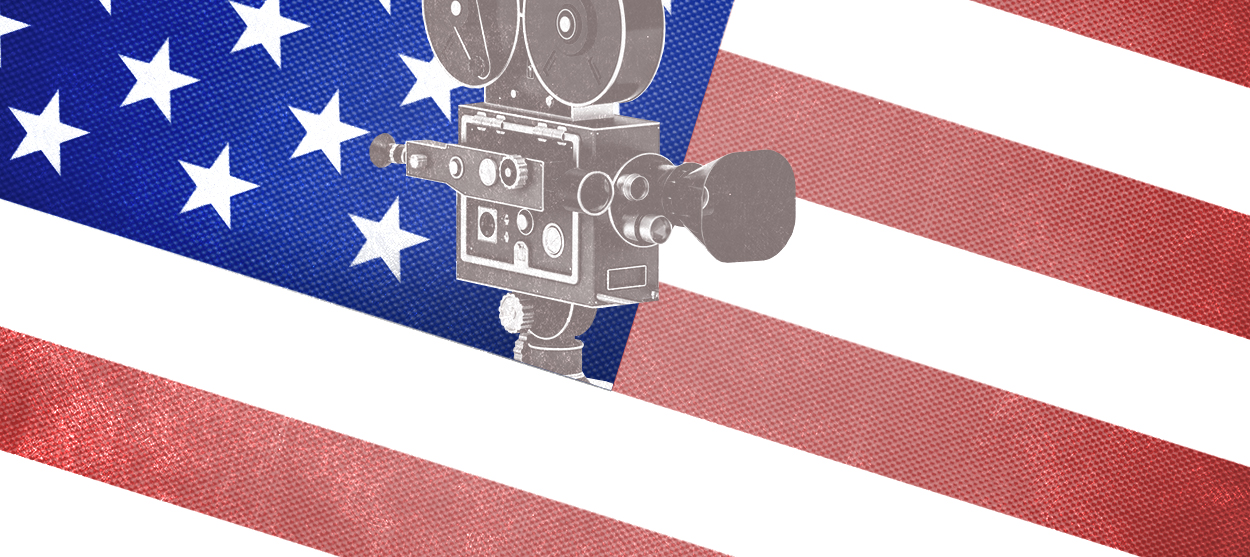
A free daily email with the biggest news stories of the day – and the best features from TheWeek.com
You are now subscribed
Your newsletter sign-up was successful
What does it mean to make a great movie about America in the 21st century? It requires more than just depicting an episode of our shared history — such a movie needs to touch upon, in some way, what my colleague Damon Linker has called this country's "moral and historical complexity." It must refrain, above all else, from being "a purified object of imagined perfection."
There are many terrific, classic examples of this (here are Linker's choices). But in the past decade, filmmakers have increasingly moved away from simple stories depicting idealized American patriotism, and grappled with that idea of complexity — both the good and the bad, the beautiful and the tragic, the laudable and the despicable about this 244-year-old country. Today, the best movies about America touch on class and race. They wrestle with the ghosts of our past and dream of a better future. They recast the ways we've mythologized ourselves. They turn over the Bush years, the Great Recession, the Obama era, and describe history with a more discerning, less homogenous eye. Many of the films, also, were misunderstood upon release, and have only come to be definitive of an era with the benefit of hindsight (it is also perhaps telling that the most films on this list are from during or immediately after a presidential election year).
While there are dozens of other films that could deservedly be argued to be included alongside these, here are 16 movies from the past 10 years worthy of the title of the great modern film about America.
The Week
Escape your echo chamber. Get the facts behind the news, plus analysis from multiple perspectives.

Sign up for The Week's Free Newsletters
From our morning news briefing to a weekly Good News Newsletter, get the best of The Week delivered directly to your inbox.
From our morning news briefing to a weekly Good News Newsletter, get the best of The Week delivered directly to your inbox.
The Social Network (2010)
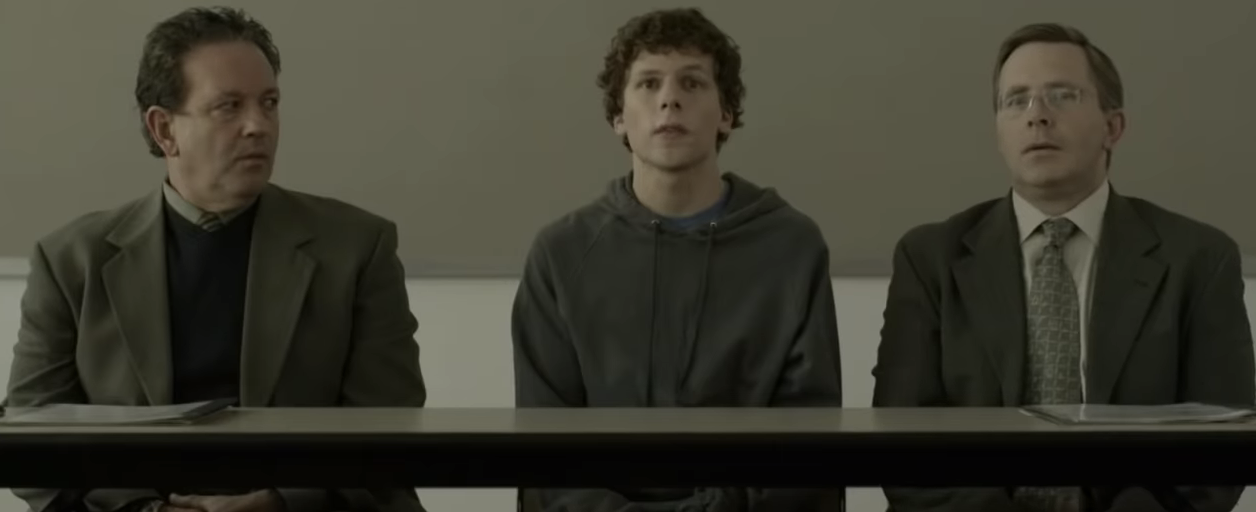
The Social Network is one of those rare movies that, upon release, was already understood to be an important document of American life. By "lacing their scathing wit with an aching sadness," director David Fincher and writer Aaron Sorkin "define the dark irony of the past decade," Rolling Stone wrote when the movie came out in 2010. Oddly, the film also came to define the next decade, too: "The Social Network was more right than anyone realized," Wired wrote last year, noting that "its lessons about privacy and power still ring true nearly 10 years later."
Of course, our perception of Facebook has also changed in the years since Fincher's film came out; Wired goes on to call it "a Rosetta Stone. If you want to translate how you or anyone else is feeling about Facebook, turn on The Social Network and chronicle the reactions." In 2017, for example, the ruling by The Verge was that the film "feels like a relic, a naïve movie with quaint, softball critiques of Mark Zuckerberg and his creation."
It'd be an intriguing experiment to watch The Social Network today, as hundreds of companies this month boycott Facebook over the company's failed attempts to stop hate speech and the spread of misinformation. As Wired summed it up, The Social Network "will always be a good film — a Citizen Kane for a different kind of media mogul."
A free daily email with the biggest news stories of the day – and the best features from TheWeek.com
The Queen of Versailles (2012)

(Magnolia Pictures)
Director Lauren Greenfield has spent decades chronicling the lives of the uber-wealthy, and when she set out to shoot Queen of Versailles in 2007 — about "Orlando's timeshare king" David Siegel and his wife, Jackie, constructing their 90,000-square foot mansion — it seemed another chance to gawk at some weirdo billionaires.
But then the 2008 financial crisis struck and "[i]nstead of a glory feature about the realization of the American dream, The Queen of Versailles ended up as a tragic, strangely sympathetic portrait of a financially overextended family trying to rein in its extravagant lifestyle," Vanity Fair writes. As Greenberg explained it to the magazine: "The building of the house was my original premise, but when they had to put that on the market, I realized that this was not a story about one family or even rich people. But really it was an allegory about the overreaching of America and really symbolic for what so many of us went through at different levels."
Zero Dark Thirty (2012)
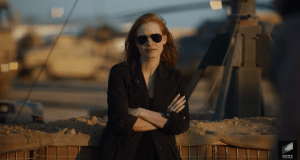
(Sony Pictures Entertainment)
Zero Dark Thirty was deemed a "torture fantasy" and "Osama bin Laden's last victory over America" when it came out, getting slammed for "glorifying" the so-called "enhanced interrogation techniques" that the characters use in this fictional recounting of the CIA mission to kill the al-Qaeda founder. (Never mind that to have omitted such scenes from the story, as The New York Times put it, "would have been a reprehensible act of moral cowardice").
But such a reading of the film is also to take credit away from Kathryn Bigelow, a shrewder and subtler director than certain audiences immediately took her to be. As The New Yorker explained it, "how a viewer reacts to the mission itself will likely be determined by how the viewer feels about bin Laden, the American military, and the so-called war on terror," with the movie's events provoking "a moral questioning of the viewer [and] of the viewers' judgment of the past decade of American politics in the wake of the September 11th attacks."
12 Years a Slave (2013)
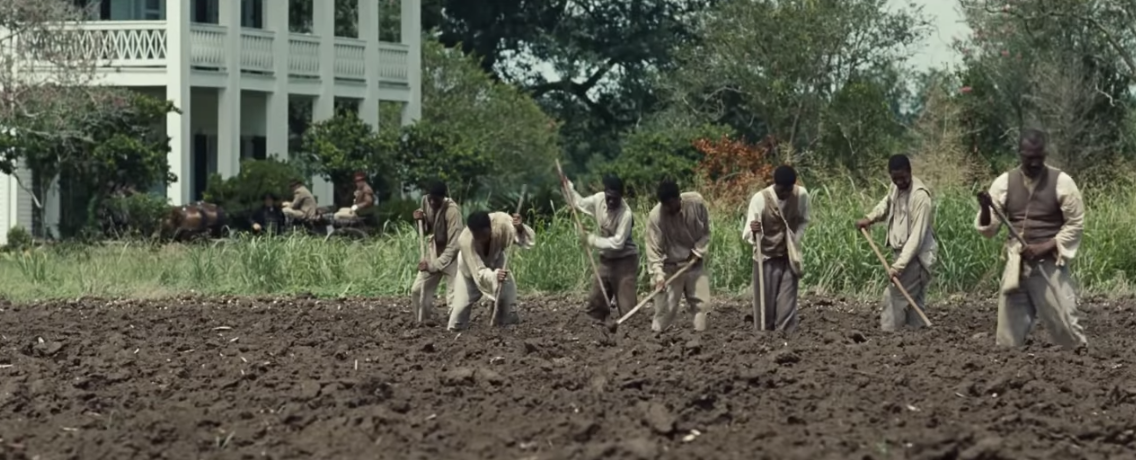
When British director Steve McQueen's 12 Years a Slave was released in 2013, it was praised as marking "a turning point in the viewing public's acceptance of more realistic interpretations of the harsh, violent, exploitative nature of black chattel slavery." The film follows the story of the free-born Black man Solomon Northup, who was kidnaped in 1841 and forced to work a Louisiana plantation until his release 12 years later in 1853, and does not hold back on depicting the cruelty and violence of the antebellum South.
But as Variety hyperbolically noted in its review at the time, "It's a shame that such injustice was allowed to exist for so long ... and an even bigger disgrace that it takes a British director to stare the issue in its face." Still, sometimes it takes the eyes of an outsider to show us our own reflection.
As Henry Louis Gates, a historian and consultant on the movie, told The Guardian, we're now living in "the new Jim Crow, as Michelle Alexander called it, the horrendously huge population of [imprisoned] black males. It's the best of times for the black community. It's the worst of times. I'm hoping that 12 Years a Slave serves as an allegory of what it is like to be a free man being kidnaped and falsely imprisoned."
At Berkeley (2013)
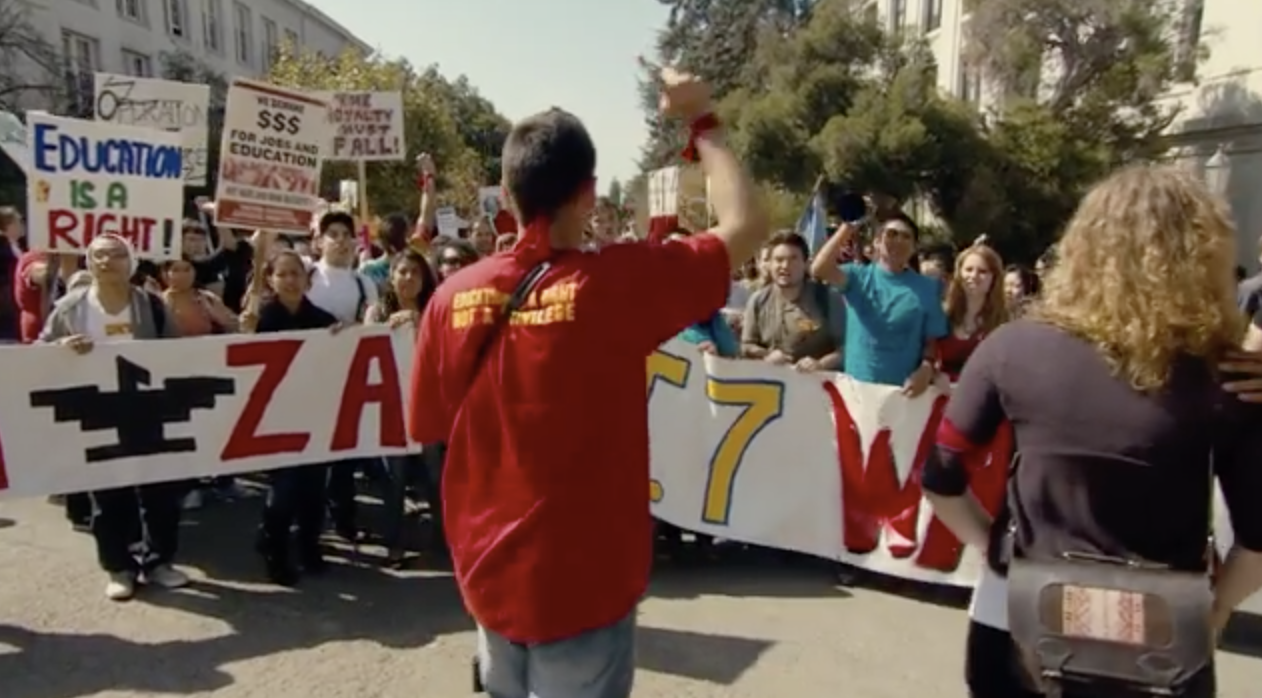
Frederick Wiseman is one of the best living chroniclers of America, with each of his more than 40 films exploring a different theme (High School, Hospital, Public Housing, Domestic Violence, etc.). At Berkeley is his four-hour deep-dive into the University of California, Berkeley, one of the most prestigious and selective public schools in the nation.
"In its refusal to identify anyone by name or job title … [At Berkely] makes a profound statement about democratic participation," observed The New York Times. "It's not the 'me,' but the 'we,' that keeps democracy alive. From the humblest janitor to the most esteemed professor, everyone belongs to the same community and is equally important."
And yet, "in the language of one commentator, the film's subject is 'how capitalism is reshaping education' in an age of dwindling resources and the fading of the middle-class dream." As The Chicago Reader framed it, "At Berkeley is Wiseman's meditation on the George W. Bush years, a period marked by cultural disunity, sweeping disinvestment in social programs, and the worst income inequality our nation has seen since the 1920s."
Here's to hoping the 90-year-old Wiseman is now at work on Plague.
The Bling Ring (2013)

(A24)
Sofia Coppola's The Bling Ring is "an artful, fun examination of why hating America is often completely justified," Mother Jones wrote in its 2013 review. It's an amusingly accurate statement.
The film was inspired by a 2010 Vanity Fair true-crime article "The Suspects Wore Louboutins," about a group of celebrity-obsessed teenage girls who burglarized stars' homes. The Bling Ring was criticized contemporaneously for being perceived as just as shallow as its subjects.
Yet "part addictive reality-show depiction of Valley Girls-Gone-Wild and part meditation on the influence of celebrity culture and consumerism, the flashy film mirrors the most extreme manifestations of the American Dream in contemporary society: the intoxicating idea that we can reinvent ourselves, drawing fame and power from something as basic as putting on someone else's clothes and becoming a new person," argued the now-defunct blog Vox Populi. Emma Watson, who played the teen Nicki, has told The New York Times that she even had difficulty promoting the movie. "I feel like journalists have been setting me up or inviting me to criticize consumerism, celebrity culture, social media, fame, and fashion," she said. "But ironically I, in my own way, I am part of all of that."
The Wolf of Wall Street (2013)
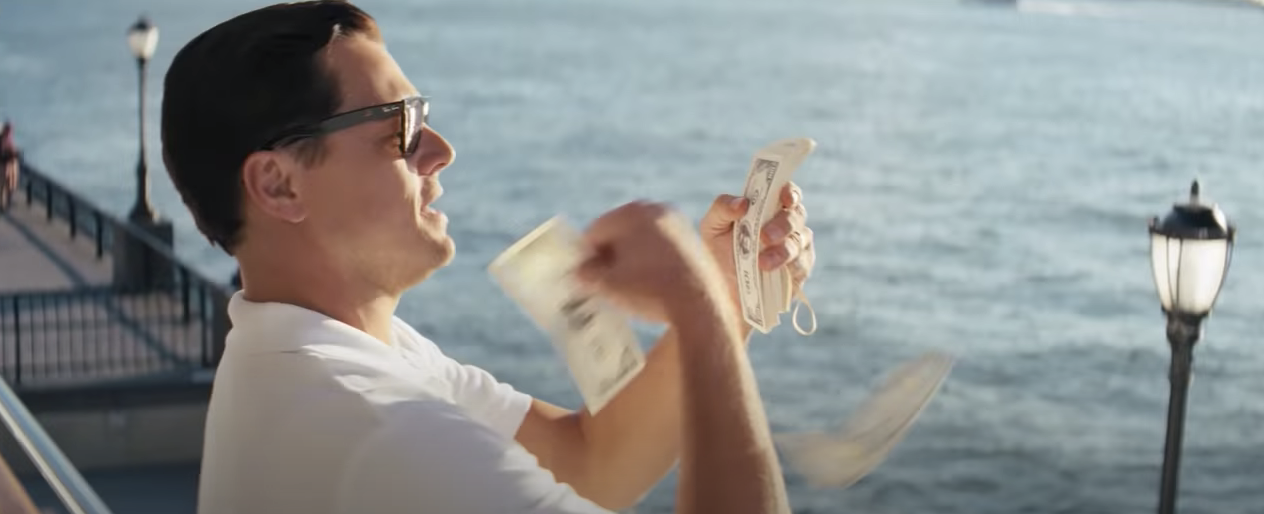
Actor Leonardo DiCaprio has described the protagonists in The Wolf of Wall Street — including his own character, the real-life stock broker and penny-stock scammer Jordan Belfort — as "guys in Long Island trying to be the fat cats on Wall Street, who were simultaneously destroying our economy. It represented something in our culture, this attitude of gaining wealth at any cost and feeding into every carnal desire you possibly can."
Martin Scorsese's film was criticized when it first came out for supposedly glorifying excess and greed, a complaint that reflects a deep misunderstanding of the film. "Wolf stands out not only as the most anti-Wall Street movie I've ever seen from a major director but as a scathing indictment of the American Dream or what's become of it in an age of extreme inequality and decadent consumerism," wrote The Atlantic. "As Scorsese presents it, today, the American Dream has nothing to do with creation or client service … the essence of it is simple: money, lots and lots of money."
Stray Dog (2015)

While shooting Jennifer Lawrence's breakout movie, Winter's Bone, director Debra Granik met Ron "Stray Dog" Hall, the Vietnam War veteran who became the subject of her next film.
The documentary Stray Dog, like Winter's Bone, is set largely in rural Missouri, in the trailer park where Hall lives when he's not out on his bike, or on the annual ride with fellow vets to the Vietnam Memorial in Washington, D.C. "In an era when many coastal Americans' ideas of the heartland poor come from such hicksploitation TV series as Duck Dynasty and Here Comes Honey Boo Boo, Hall provides a very welcome, walking corrective," Variety wrote in its review of the film.
Or as Granik put it herself to PBS: "I'm always searching to learn more about our large and diverse country. There are so many American experiences that we can't know about unless we venture out to create a dialogue, to observe, ask questions, and stay there for a while."
The Fits (2015)
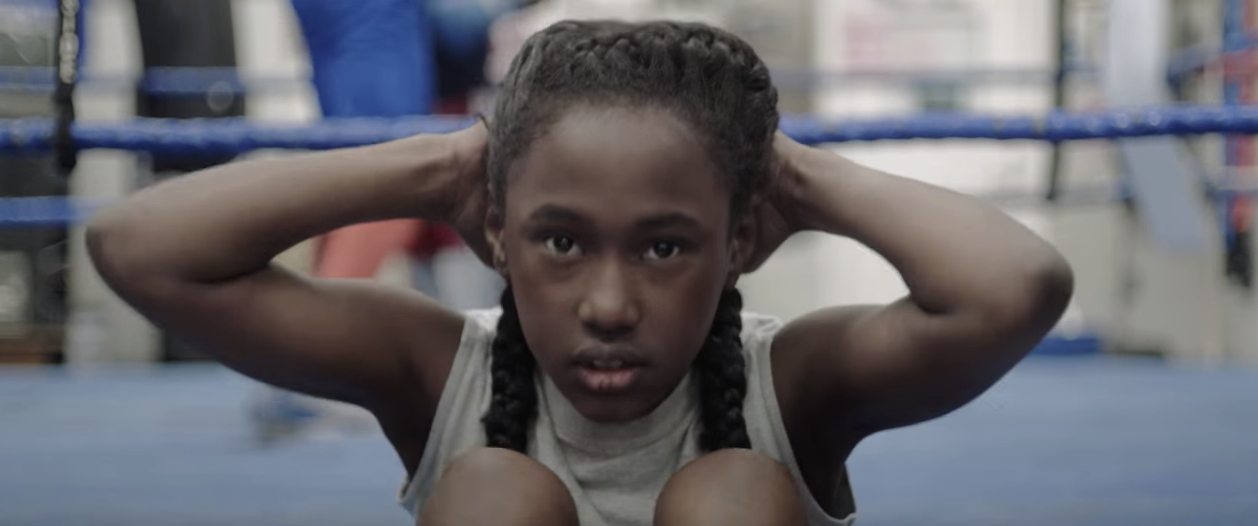
What does it mean for a girl to come of age in a country like America? It's a question that has been explored by filmmakers over and over again, to greater and lesser results.
But while "puberty has commonalities shared by all women … by setting The Fits in a Black space, the film became specifically about the perils and pitfalls of growing into a Black woman," writes The Washington Post. In the film, Royalty Hightower plays 11-year-old Toni, a boxer who begins to train with a dance team, The Lionesses, who shares the same Cincinnati community center. But soon the older girls on the team begin experiencing strange seizures called "the fits," which are seemingly a kind of mass hysteria.
Director Anna Rose Holmer draws on the way American teenage girls have long been considered by our culture with prejudice and suspicion — from the Salem witch trials, to a group of high schoolers who, in 2007, experienced a "mass psychogenic illness." But as The New York Times writes, "Are these Freudian fits, Crucible-like convulsions, orgiastic reveries, initiation ceremonies (into femininity, etc.) or sly performances from attention-hungry adolescents? If the filmmakers never directly say, it's because they don’t have to. Gender is some kind of performance (hysterical, hysterically absurd). And anyway, Toni figures it out."
Did You Wonder Who Fired the Gun? (2017)

Did You Wonder Who Fired the Gun? is what you might call an essay film, although it's really more of a memoir. "In 1946," the film begins, "my great-grandfather murdered a black man named Bill Spann and got away with it."
From there, director and narrator Travis Wilkerson proceeds to dive into archives, home footage, and newly-conducted interviews to try to find out more about an otherwise forgotten crime committed by his relative, S.E. Branch, in a small Alabama town. "A Southern Gothic agitka, the film tackles the exonerating myths of white liberalism as inscribed in masterpieces of democratic benevolence such as Harper Lee's novel To Kill a Mockingbird, filmed by Robert Mulligan in 1962," writes Cinema Scope. "Against the film's protagonist, Atticus Finch, who the American Film Institute named in 2003 the greatest movie hero of the 20th century, Wilkerson tells the story of another American patriarch: his great-grandfather, S.E. Branch."
Or as the Sundance Institute described it, the film is "part séance, part detective story, part horror story, and 100 percent [an] American story."
The Rider (2017)
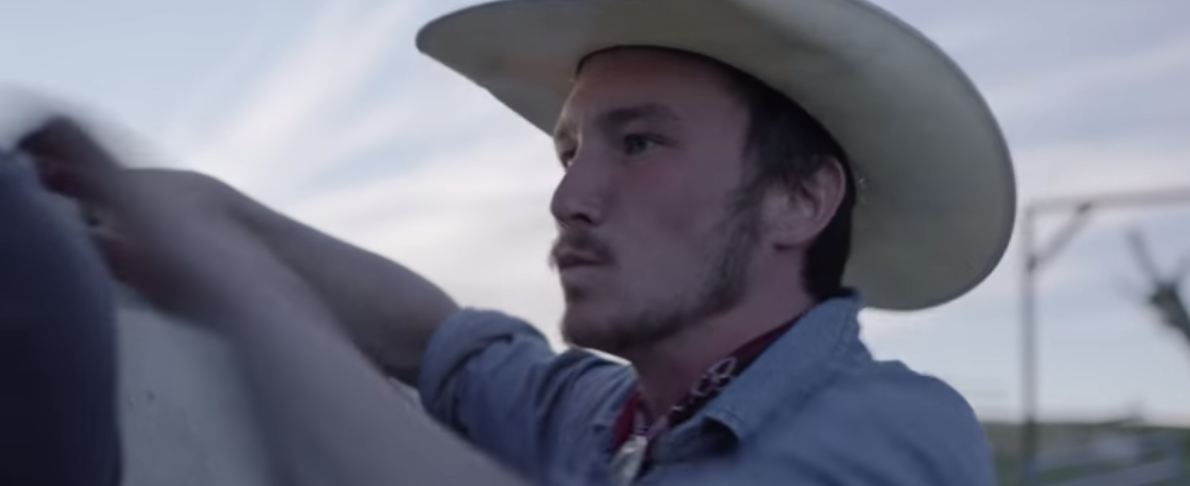
Some of the best movies about America are being made by a director who didn't even live here full-time until after finishing high school. The immensely talented Beijing-born Chloé Zhao shot her first two feature films within the community of the Lakota Sioux tribe of the Pine Ridge Reservation, in South Dakota, the second of which is The Rider.
Though the film is fiction, Zhao uses nonprofessional actors and their biographies to inform her work; The Rider's star, Brady Jandreau, for example, is actually a horse trainer and rodeo rider (the YouTube video of his accident, which is the inciting incident of the story, is real, too). "The Rider melds two classic film genres — The Western, associated with the masculine, and the Melodrama, considered a feminine form — to offer contrasting perspectives on the life of the main character and the occupation he loves," writes Dismantle. "Through this juxtaposition the filmmaker presents the struggles of Indigenous communities who must navigate the limitations of toxic masculinity and its association with the racially violent mythology of the American West."
Excitingly, Zhao is reportedly also working on an adaptation of Nomadland: Surviving America in the Twenty-First Century — which, who knows, could one day be on this list for the next decade.
Bisbee '17 (2018)
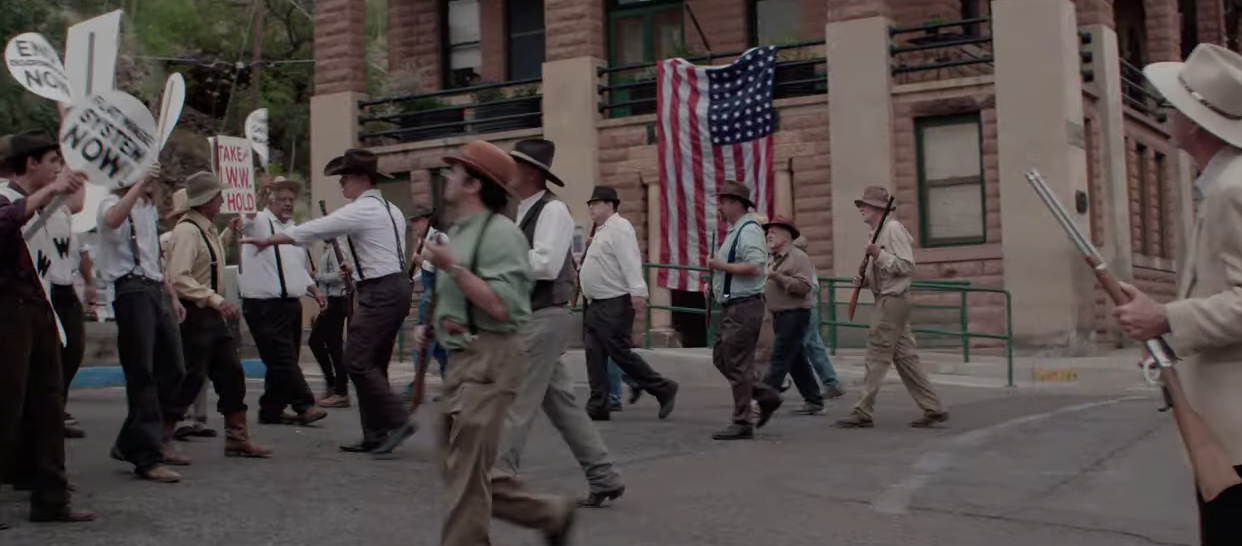
On a July day in 1917, some 1,200 copper miners in Bisbee, Arizona, were violently corralled by a local mob and deported via cattle-car to the New Mexican desert. Most of the miners were underpaid immigrants, and they'd toiled in the mines in dangerous conditions; the group had joined the Industrial Workers of the World in the hopes of bettering their situation, which infuriated locals, who deemed them "communists."
On the 100th anniversary of the deportation in 2017, director Robert Green returned to Bisbee — now not much more than a ghost town — where he had the residents stage a reenactment of the events. "In immigration debates, labor disputes, and various culture wars, the Bisbee mindset is as alive now as it was in 1917," writes Hyperallergic. "Divisions, collaboration, dreams, nightmares, paranoia, land, facades, and capital have always been key cogs in the darkness of the American experiment, and Bisbee '17 won't let you forget that."
If Beale Street Could Talk (2018)
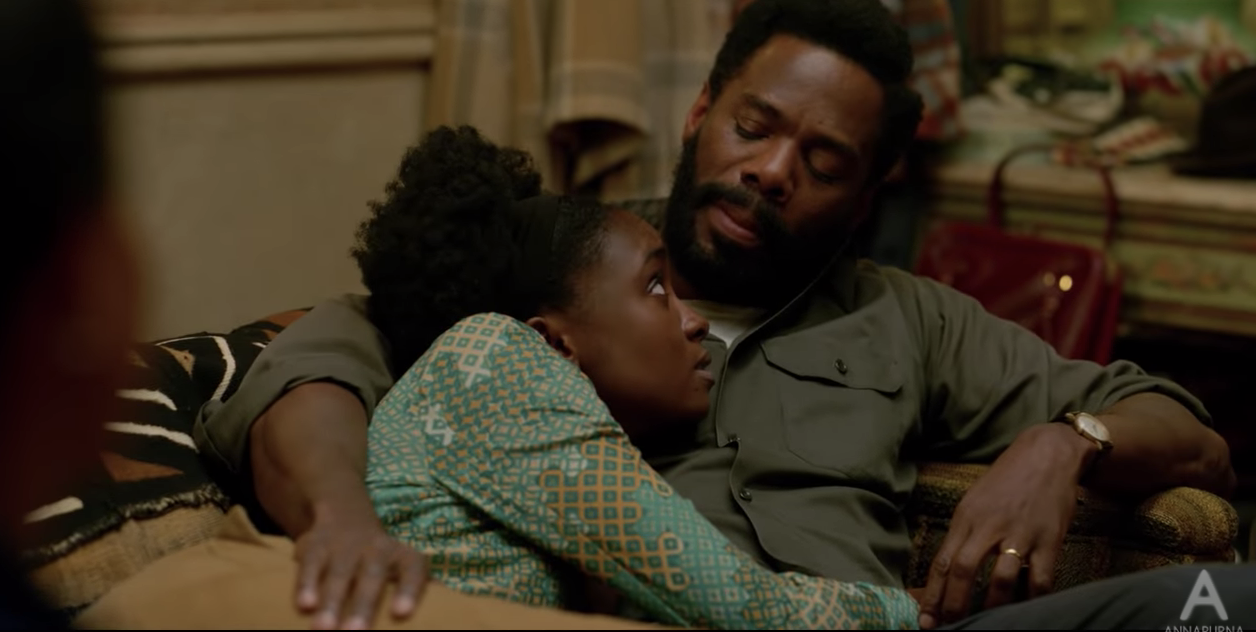
"Every Black person born in America was born on Beale Street, whether in Jackson, Mississippi, or in Harlem, New York," wrote James Baldwin, and quotes director Barry Jenkins on screen in this adaptation of Baldwin's novel. "Beale Street is our legacy."
Like that connective spine of Beale Street, Jenkins uses Baldwin's book about the falsely-accused Fonny (Stephan James) and his girlfriend, Tish (KiKi Layne), to tell a tragically American narrative about institutional racism, injustice, and incarceration — but also a beautiful one, about Black love. "While If Beale Street Could Talk is a prescient narrative about the American carceral state, the storyline of systematic racism doesn't overshadow the tale of the young Black couple and their families," explained The Atlantic.
Another recent film based on Baldwin's work, I Am Not Your Negro, and Jenkins' Moonlight, both on Netflix, are additional must-sees in the same vein.
Dark Waters (2019)

There are lots of movies about American heroes that could have made it onto this list, like 2013's Captain Phillips about Captain Richard Phillips (played by Tom Hanks), or the 2016 biopic Sully about Chesley "Sully" Sullenberger (played by Tom Hanks), or even A Beautiful Day in the Neighborhood, about Fred Rogers (played by … Tom Hanks).
But Dark Waters, a passion project from actor Mark Ruffalo and directed by Todd Haynes, focuses on not a pilot or captain or children's role model, but the corporate defense attorney Robert Bilott, who went from defending major American corporations to taking on one of the biggest of all — DuPont, which was knowingly poisoning the water supply of citizens in West Virginia. "What's remarkable about Rob [Bilott] is he's not your typical hero," Ruffalo has said. "He's not a hero because we want to be him, he's a hero because we don't."
Us (2019)
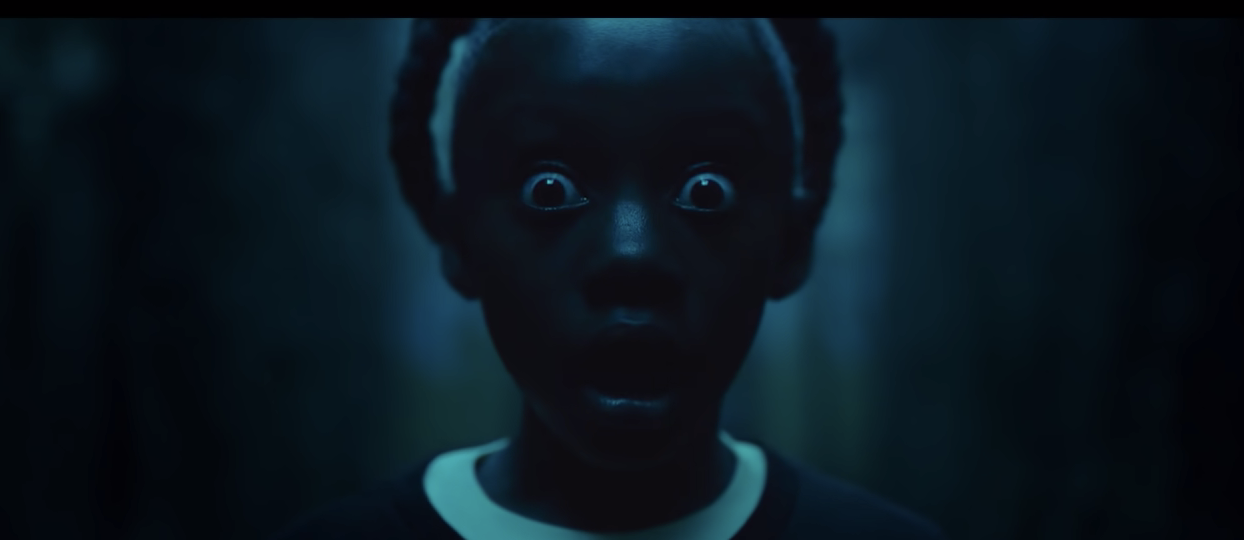
Jordan Peele's 2017 film Get Out might have had this spot on the list if the director's sophomore feature, Us, didn't twist the knife even deeper. Where Get Out presented a simplistic — but damning — satire about race relations in America, Us explores the horror of living in a nation of extreme dualities, where there is always a cost to maintaining how "the other half lives."
Writes The New Yorker, "Us highlights the unwitting complicity of even apparently well-meaning and conscientious people in an unjust order that masquerades as natural and immutable but is, in fact, the product of malevolent designs that leave some languishing in the perma-shadows."
Or, as the movie's "monster," Red (Lupita Nyong'o), puts it when asked who she is: "We are… Americans."
First Cow (2020)
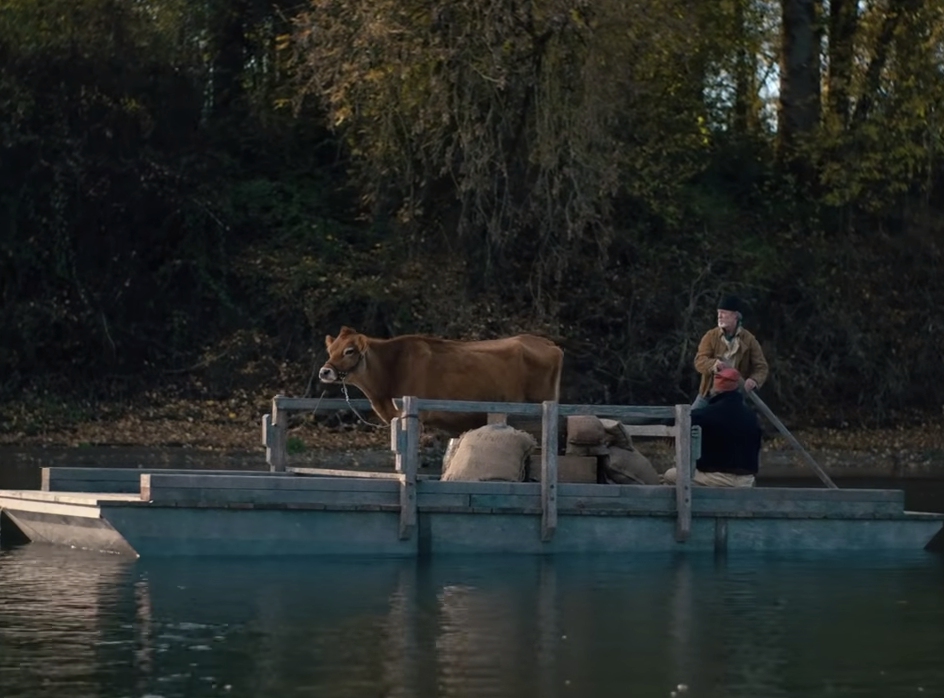
Kelly Reichardt is one of the great American filmmakers working today, and it's challenging to narrow her oeuvre down to a single representative film. First Cow, though, stands out as what WBUR calls "a glimpse of America in the process of becoming itself, for better and worse."
Set in Oregon Territory in the 1820s, King-Lu (Orion Lee), a Chinese immigrant, and Cookie (John Magaro), a former cook, team up to steal milk from a wealthy trader's dairy cow in order to supply their lucrative business selling oily cakes to the locals. But "all bets are still hedged on a passage that would barrel two seekers to a prosperous elsewhere," writes The Nation. "Reichardt offers this dream to stage the slow revelation that the open road is a capitalist trick of deferral: Labor away with one eye on the scintillating future, and the present becomes bearable."
Jeva Lange was the executive editor at TheWeek.com. She formerly served as The Week's deputy editor and culture critic. She is also a contributor to Screen Slate, and her writing has appeared in The New York Daily News, The Awl, Vice, and Gothamist, among other publications. Jeva lives in New York City. Follow her on Twitter.
